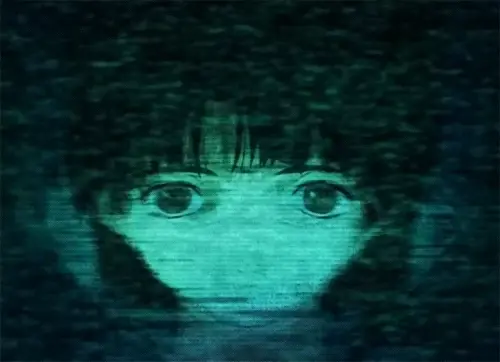







I guess I meant more as in that Chapo’s audience has moved further left than them, and are looking for more “serious” analysis.
Deprogram is more internationalist (which is good) but it also tends to draw out the class reductionist (which isn’t as good).


As for the users, there’s overlap between r/TheDeprogram, r/LateStageCapitalism, r/WorkersStrikeBack… and here and Lemmygrad, but I don’t envy anyone who stayed on reddit cos the place is hella astroturfed right now, between Zionists and Liberal “Harm Reduction” Dems (I know I repeat myself, but still).


Yeah, I think everyone who was a fan of Chapo/Trueanon in 2016 has moved on to The Deprogram / Blowback / Democracy Now! etc.
I still tune in to Hasan and Chapo if a topic interests me, for things like movie reviews and stuff.
(Also Hasan has been blowing up in my feed because of all the Twitch drama atm)


Did they say something cringe recently?
I still listen from time to time. Not to my knowledge. Hell they’re one of the handful of left media figures who’ve been consistently good on Palestine.


I’ve got good news for you!
https://killsixbilliondemons.com/comic/kill-six-billion-demons-chapter-1/
Is where “reach heaven through violence” is quoted from. It’s good stuff, written by an actual leftist too


There’s not enough text for it to be the former


Winter Soldier activation code words, but for Hexbears


Ok so this is kinda a big topic but I’ll do my best to break it down. To cut to the chase I think Eva stands on it’s own reasonably well, although maybe knowing the general history of the genre or having a passing familiarity with the tropes may enhance your enjoyment of the show.
Mecha as a genre starts with Super Robot (Tetsujin-28, Mazinger Z, Getter Robo), as an extension of the kinda Sci-Fi stories made popular by the likes of Astroboy. To broadly generalize these are (usually) Saturday Morning Cartoon stuff, adjacent to tokusatsu (live action special effects shows, think Power Rangers and Ultraman) so it’s all simplistic young protagonist saves the world from the forces of evil with their cool giant robot Modernist Power of Science and Progress power fantasy (but also some of these original shows go into WILD places because basically if your writing Sci-Fi in Japan in the 70’s you’re some kinda Leftist). Imo you don’t have to go watch these old shows, just knowing that they very much directly inspire Eva should give you all the background you need here.
As we get to the 80’s, we get to the Real Robot split. Basically creators decide that they’ve had enough of writing Saturday Morning Cartoons, they want to write real hard Sci-Fi like Isaac Asimov, Arthur C Clark and Robert Heinlein… and then finding out the only way to do that is to make animated toy commercials. But they manage to despite this commercial limitation, so you get shows like Mobile Suit Gundam and Space Battleship Yamato which are nuanced meditations on the nature of war drawn from the lived experiences of the generation that survived WW2, and they express their anti-fascism very strongly in their art.
I highly recommend the original Mobile Suit Gundam (UC0079). The compilation movies (Mobile Suit Gundam The Movie, Mobile Suit Gundam II: Soldiers of Sorrow and Mobile Suit Gundam III: Encounters in Space) are great watches and condense the series into a decent runtime, although you will definitely miss some stuff from the series. It serves as a pretty decent baseline for what Eva is critiquing, although even here there’s more nuance than “Gundam Tropes Bad”, where Eva is more in a dialogue with things Gundam’s doing as a story that’s evolving beyond the kinda pulpy Saturday Morning Cartoon roots of the genre.
Mecha as a genre is compelling because the Giant Robot is such a potent visual metaphor and storytelling vehicle. But I think what’s special about Eva, and why it has lasting power as a story, is because up till that point no one had ever bothered to question if the kinds of stories we tell ourselves about our technology and our wars were worth telling in the first place, or if they’re just comforting lies designed to fill a vacuum in our souls. I think Eva still stands up well even without the larger context of the deconstruction, just from it’s sheer brazenness in being willing to break down every single tiny aspect of it’s characters and dive into their psychology, while avoiding easy answers, to show human beings as the messy imperfect creatures that they are- it’s more character study than anything else.
(And, like, it’s extremely wild that this kinda injection of Postmodern literature is happening to… what isn’t really that far off from a Saturday Morning Cartoon, but the 90’s were the Wild West of animation, History had Ended (thanks Francis Fukuyama) and um, the director of Eva really suffered from severe depression so… hey, I guess poison pilling existential dread into your Giant Robot show is a winning formula or we wouldn’t be talking about it now.)
P.S. Gurren Lagann is my favourite show of all time (or close to it) but I’ll strongly recommend you watch it after Evangelion. Basically the staff who worked on that show were the protege’s of the staff who worked on Eva, and Gurren Lagann was them saying “Hey you were right to question all those tropes, but the underlying principles the genre is built on, Hopefulness of the Future and a Belief in the Human Spirit (I’m trying to be as vague as possible to avoid spoilers) aren’t bad things and are worth preserving and we’re going to prove it with this show.” It’s a continuation of that larger meta-dialogue all this art is having, and imo it’s best experienced in order.


Keep in mind that Eva is also meta-criticism of mecha as a genre- almost every single child soldier pilot in all the shows before Eva kinda uncritically “got in the robot”, and Anno going “wait that’s kinda fucked up actually” is why Eva’s considered a deconstruction
Also I think a lot of replies you’re getting are from people who finished the show, and a bit further in the show is really going to dig into Shinji’s character and he gets a little more sympathetic there I think


This is my problem with the Rebuild of Evangelion movies


Most of them are izutsumi for some reason lol






Welcome back
The Filoniverse is all the worst excesses of the SW Expanded universe stuff, just even less interesting.
Like at least when Kyle Katarn or Dash Rendar randomly show up in a SW novel it was at least kinda endearing if just as creatively bankrupt


My off-the-cuff armchair psycho-analyzing (which very well could be wrong, I’m just some random on the internet) is that particular situation tapped into people’s own personal relationship traumas- men feeling like their partner refuses to acknowledge their emotions as valid, women’s intentions being misunderstood due to toxic masculinity… and so on. And then once you’re in that head-space it really is hard to pull yourself out of it, especially when other people visibly roll up with their support for the other side, which makes you go into a defensive crouch to validate your own position on the matter.
Will we (collectively, as a community) learn anything from this? Oh hell nah.
Even if you add all the 3rd party votes to the Democrats instead Kamala would still have lost to Trump.